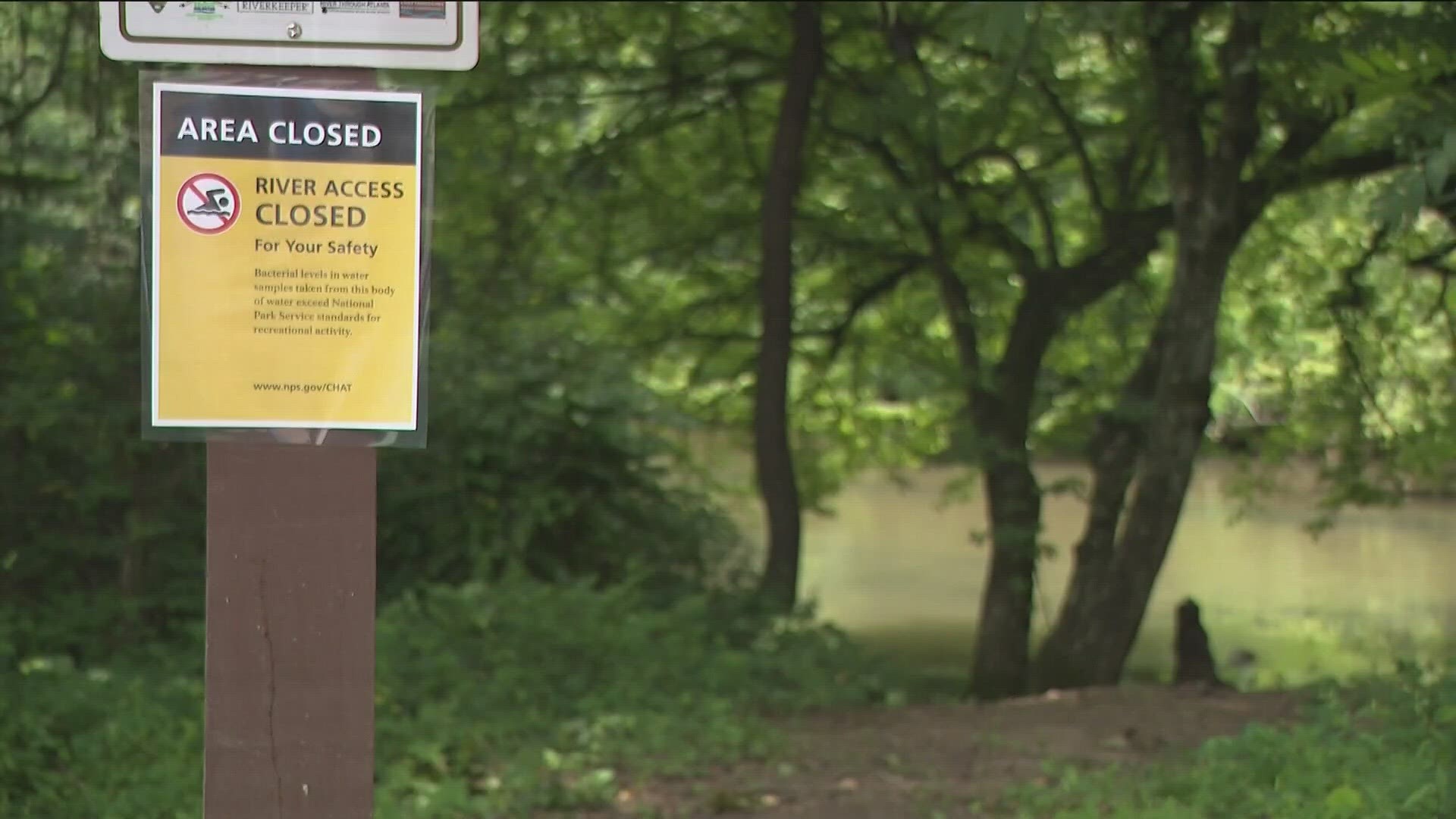ATLANTA — Grab your kayaks and get ready to head downriver because the Chattahoochee is reopening some portions that were closed in metro Atlanta due to an E. coli contamination.
The Chattahoochee River National Recreation Area made the announcement Monday afternoon.
Part of the river was closed last week due to a health risk from elevated E. coli contamination. Now, the section downstream from Powers Island has reopened.
Park authorities noted that the river is still closed from the Nature Center to Powers Island. However "the sections of the river below Powers Island have bacterial levels below the criteria recommended by the Environmental Protection Agency, but conditions remain subject to change."
For now, the park said it is continuing to monitor and test the water quality, as well as assess the potential impact on wildlife and vegetation.
More on the contamination
Last week, officials said the root cause was identified as an imbalance in the biological processes employed to treat wastewater. These processes rely on a balance between "good" and "bad" organisms. In this case, insufficient levels of the beneficial organisms resulted in the proliferation of harmful bacteria, including E. coli.
To rectify the situation, the county government said starting on July 3; it began introducing 12 truckloads of "good" microorganisms per day into the treatment plant. This reintroduction of beneficial microorganisms aims to restore the biological process and reestablish a healthy microbial balance within the facility.
On Saturday, Chattahoochee River riverkeeper Jason Usleth posted on social media that the tests are showing "significant reductions" in E. coli bacteria levels, which he said indicates the treatment process at the Big Creek Wastewater Treatment Plant are showing signs of success.
Usleth told 11Alive they got the data from Friday's tests which he said showed dramatic improvement in the river itself. He believes they are almost in the clear when it comes to the river getting back to full health. He said he has not seen any recent data from the Big Creek plant where the spill itself occurred.
The county said the ongoing testing conducted since the implementation of this measure shows promising results, with improvements observed in the number and variety of microorganisms. Fulton County added that indicators also suggest that the reintroduction of microorganisms is proving effective in restoring the biological balance at the plant.
"We are doing additional disinfection here at the very end of the plant to try to kill as much of the E. Coli that made its way through the plant as fully as possible," said David Clark, the director of Fulton County Department of Public Works.
In addition to reintroducing beneficial microorganisms, Fulton County said it has introduced additional UV treatment processes to enhance disinfection and further address the presence of E. coli. To mitigate the impact of the discharge, approximately five million gallons of wastewater are being diverted to Cobb County's Sutton Water Reclamation Plant.
It is important to note that the county claims that the current situation does not impact the safety of the drinking water in Fulton County or the surrounding communities. The county remains committed to providing regular updates as efforts continue to restore normal conditions and ensure the long-term health of the Chattahoochee River ecosystem.

